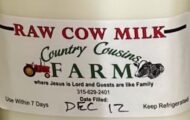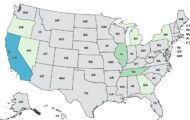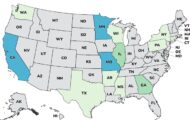Most savvy cooks know that raw eggs, meat, poultry, fish, and shellfish should be handled with care because they most likely contain pathogenic bacteria. So they wash their hands after handling these products, take care to avoid cross-contamination, and sanitize surfaces after cooking. Cooking those foods to a safe final internal temperature will kill the pathogenic bacteria.

But did you know that uncooked flour can also be contaminated with pathogens? A study published in Foodborne Pathogens and Disease found that a cluster of Salmonella cases occurred in New Zealand in October 2008 linked to wheat-based poultry feed raw material. And raw flour caused an E. coli outbreak in the U.S. in 2009 that sickened 77 people in 30 states. In that case, the flour was in raw refrigerated, prepackaged cookie dough.
Scientists found that the practice of eating uncooked baking mixtures was associated with illness, even after adjusting for eggs. In the Salmonella Typhimurium outbreak in New Zealand, the PFGE patterns were the same for all of the isolates tested. The outbreak strain of the bacteria was found in flour taken from four patient’s homes, two unopened packages purchased from retail stores, and packages from three batches of recalled flour.
So when you’re cooking and baking, treat uncooked flour as you would any other potentially dangerous raw ingredient. Make sure you do not eat uncooked dough, even if you use pasteurized eggs. And if children are helping in the kitchen, watch them carefully to make sure they don’t put their fingers in their mouths after handling raw flour. And always have them wash their hands thoroughly with soap and water after touching flour, as well as raw eggs, meat, fish, shellfish, and poultry.




